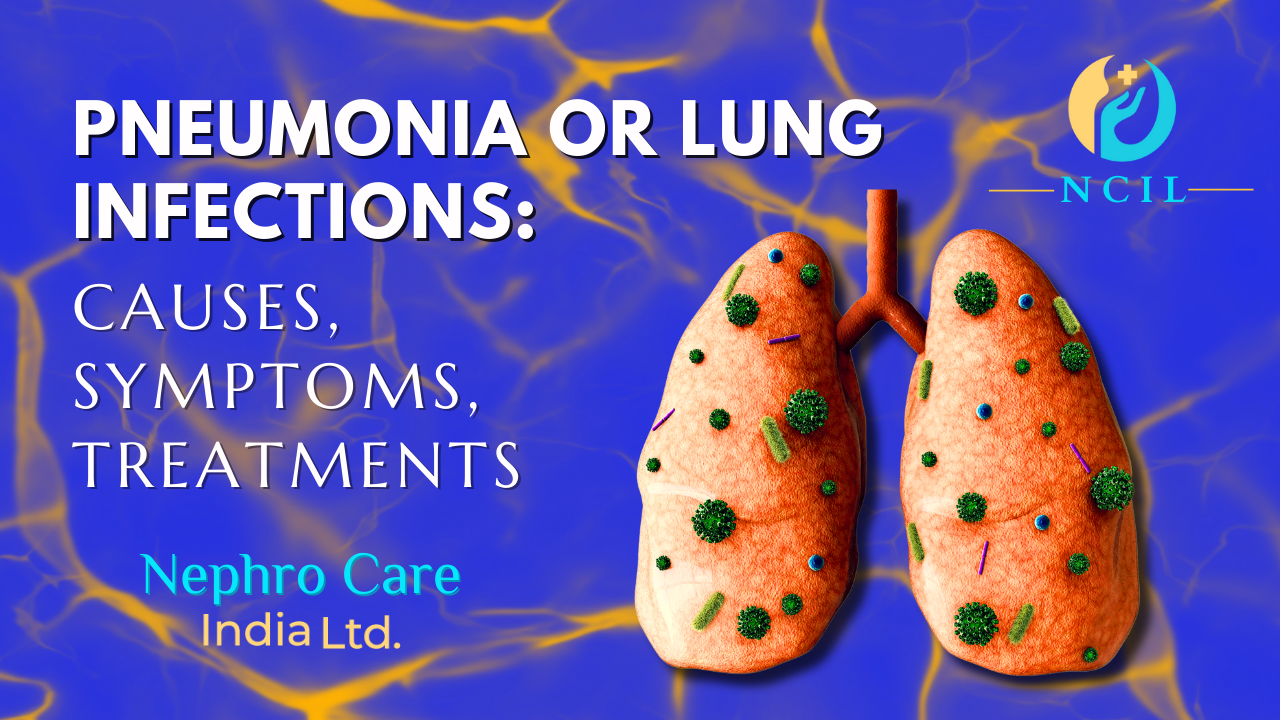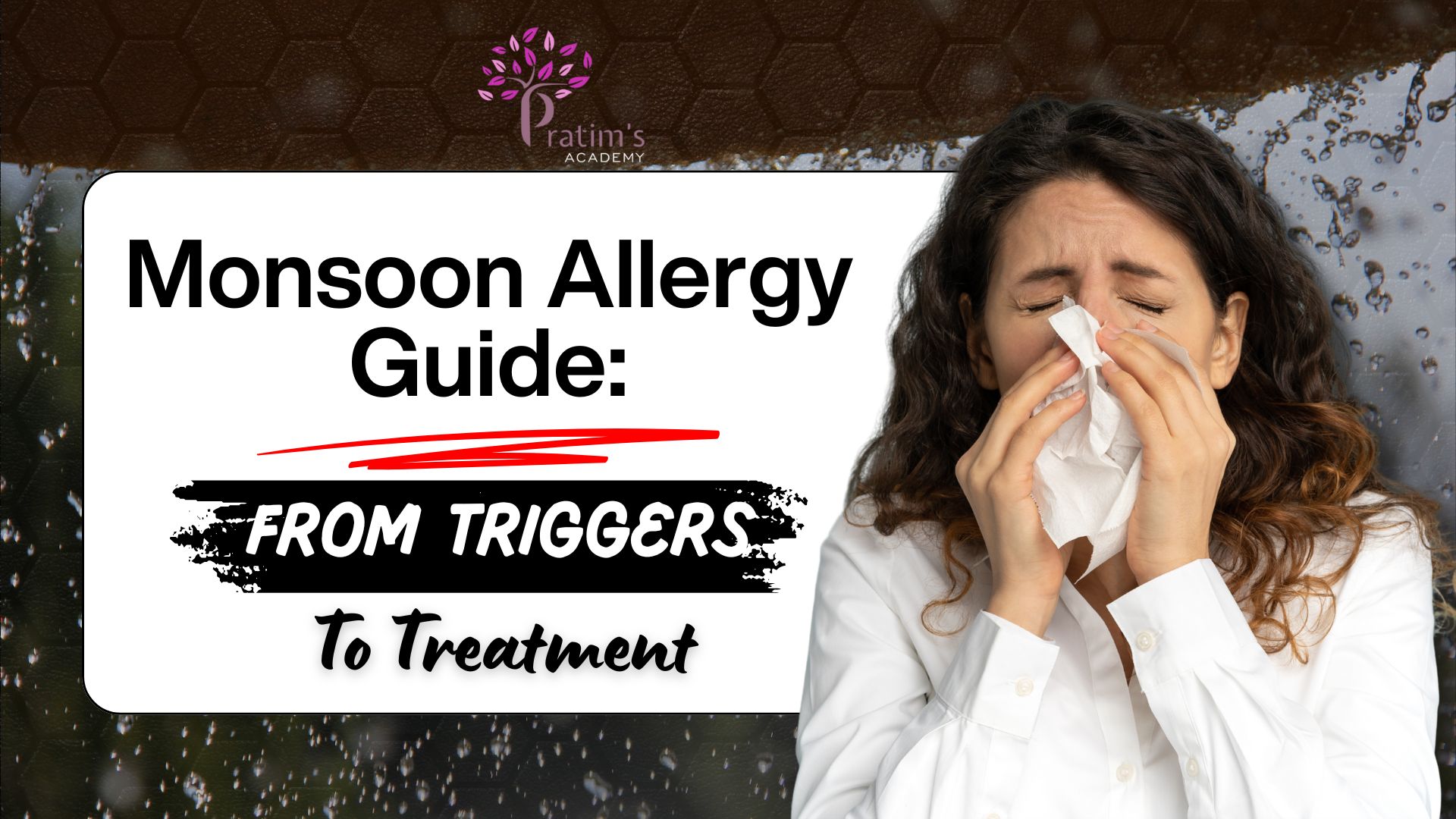
- 2513
- 6
Pneumonia or Lung Infections: Causes, Symptoms, Treatments
Lung infections are a significant health concern worldwide, affecting millions of people each year. From mild respiratory illnesses to severe conditions like pneumonia, lung infections can range in severity and require prompt attention for effective treatment. In this blog post, we will explore into the causes, symptoms, and treatment options for lung infections, shedding light on this critical aspect of respiratory health.

Causes:
Lung infection can be caused by various pathogens, including viruses, bacteria, fungi, and even parasites. Common pathogens responsible for lung infections include:
- Viruses: Influenza virus, respiratory syncytial virus (RSV), adenovirus, and coronavirus (including SARS-CoV-2).
- Bacteria: Streptococcus pneumoniae, Haemophilus influenzae, Mycoplasma pneumoniae, Legionella pneumophila, and others.
- Fungi: Aspergillus, Candida, and Pneumocystis jirovecii.
- Parasites: Parasitic lung infections are less common but can occur, often in immunocompromised individuals, caused by organisms like Toxoplasma gondii and Strongyloides stercoralis.
Risk factors for developing lung infections include weakened immune systems, chronic respiratory conditions like asthma or chronic obstructive pulmonary disease (COPD), smoking, exposure to pollutants or allergens, and certain medical treatments like chemotherapy or immunosuppressive medications.
Symptoms of Lung Infections:

Common symptoms may include:
- Coughing (with or without phlegm)
- Shortness of breath or difficulty breathing
- Chest pain or tightness
- Fever or chills
- Fatigue
- Sore throat
- Nasal congestion or runny nose
- Wheezing
- Bluish tint to the lips or nails (in severe cases)
Treatment :
- Antibiotics for Bacterial Infections
- Antivirals for Viral Infections
- Oxygen therapy or Mechanical ventilation
- Rest
- Hydration
Preventing Lung Infections:
Prevention is key when it comes to reducing the risk of lung infection. Here are some steps you can take to protect yourself and others:
- Practice good hand hygiene by washing your hands frequently with soap and water or using hand sanitizer.
- Avoid close contact with sick individuals, and if you are sick, stay home to prevent spreading the infection to others.
- Get vaccinated against common respiratory infections like influenza and pneumococcal pneumonia.
- Quit smoking and avoid exposure to secondhand smoke
- Maintain a healthy lifestyle with regular exercise, a balanced diet, and adequate sleep to support a strong immune system.
For a maintained lifestyle, you can click here 👇
- Follow recommendations for wearing masks and practicing physical distancing during outbreaks of respiratory illnesses like COVID-19.
Conclusion:
Lung infections can range from mild respiratory illnesses to severe, life-threatening conditions, making it essential to understand their causes, symptoms, and treatment options. By taking preventive measures and seeking prompt medical attention when needed, you can help protect your respiratory health and reduce the risk of lung infection for yourself and those around you. Remember, respiratory health is vital for overall well-being, so don’t hesitate to prioritize it in your daily life
Comment
2024-11-12 13:10:27
Jayant Basu
Myself and my wife underwent your Dasha Disha - Health Checkup at your Daily A Dialysis Centre on 04/11/2024. We have not been advised about Doctor Consultation & Diet Consultation yet. Any day after 18/21/2024 will be suitable for us. Kindly let us know the consultation dates after 18th November 2024. We will be coming from Deshpriya Park.Regards Jayant Basu
Thank you. Please provide your mobile number. Our team will get back to you.
2024-11-12 13:01:13
Jayant Basu
I am a senior citizen and would like to know the name of Pneumonia Vaccine suitable for me and it\'s frequency. Regards Jayant Basu
Thanks for reaching out to us. Regarding your query please consult an expert/ physician. Also, visit/ call our Nephro Care unit to book a consultation: https://www.nephrocareindia.com/book-appointment/. We will be more than happy to help you.
2024-11-12 12:53:29
Surajit Chakraborti
Very useful
Thank you so much. For such regular updates please do visit our blog page: https://www.drpratim.com/blogs/
2024-11-12 09:27:30
MitaliPalodhi
Very informative.Infact mass awareness ines is absolutely necessary.
Thank you so much. Yes you are absolutely right. In fact you can join our Mukti programme, a holistic well-being platform : https://chat.whatsapp.com/JJgH0sTgBXGJXP7fgNVIr3
2024-03-20 08:52:11
Karabi Mukherjee, H K SETT LANE,PIN-50
Respecred Sir(Dr.) Lot of thanks & regards for your blogs on Pneumonia & Lung infection & their treatment remedies.God bless you.,
Glad to hear from you, Keep an eye out for further updates on health-related matters.
Check Your EGFR
***We Promise, no spam!









2024-11-12 13:28:50
Subrata Sinharay
Thank you Doctor for awareness guidance. I am now 80 yrs of age and visited Nefro Care Center twice for check-up. Do I need to be vaccinated for Lung infection.?
Thank you so much for your question. In general, vaccination is recommended for people based on their age or if they have certain risk conditions. Kindly talk to a vaccine provider or health expert if you have questions about such vaccines.